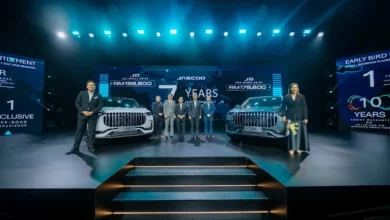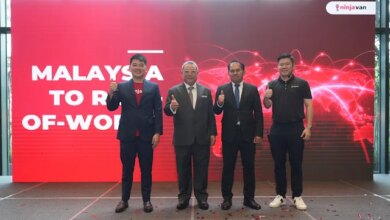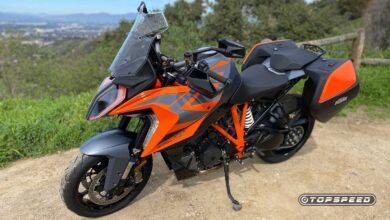Why Toyota’s Hydrogen Breakthrough Could Rival Battery EVs
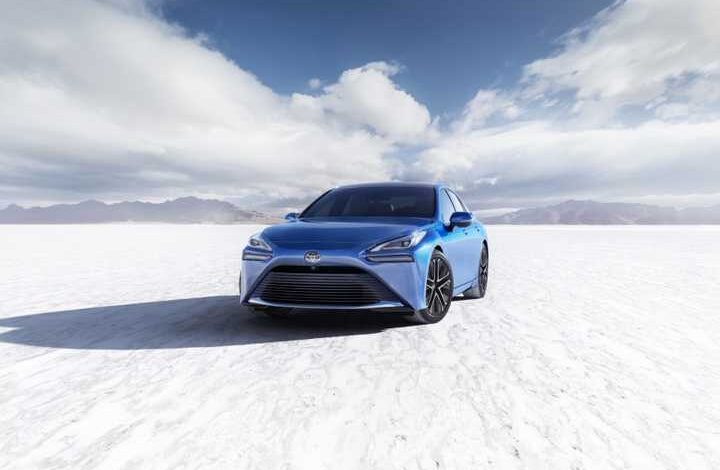
While significantly dirtier up front, in the long run, electric cars and trucks are dramatically cleaner than gas- and diesel-powered vehicles. EVs have no tailpipe emissions, which is great news for, you know, anyone who breathes, and even when charged by a “dirty” power grid, electrics still have significant advantages. But EVs also have some glaring downsides, particularly in the areas of range and charging, though there is an alternative technology that provides many of the same benefits with fewer disadvantages.
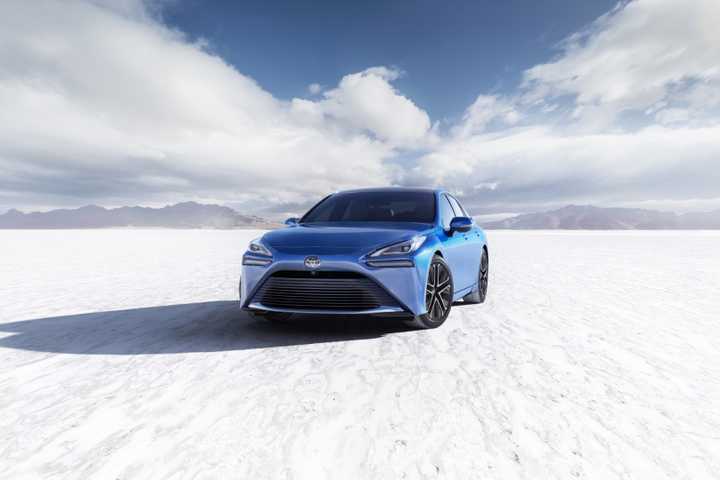
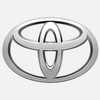
- Base Trim Engine
-
EV
- Base Trim Transmission
-
Automatic
- Base Trim Drivetrain
-
Rear-Wheel Drive
- Base Trim Horsepower
-
182 HP
- Base Trim Torque
-
221 lb.-ft.
Hydrogen is a tantalizing option that could play a huge role in powering the future. Nature’s lightest element is used to produce clean electricity in fuel cells, and it can even be burned in combustion engines. Unfortunately, no matter what year it is, hydrogen as an energy source always seems like it’s a decade away, but Toyota is hard at work commercializing this technology, and it may have a lead on rival manufacturers.
To give you the most up-to-date and accurate information possible, the data used to compile this article was sourced from various manufacturers and other authoritative sources, including FuelCellWorks.com and AAA.
Toyota’s New Era For Hydrogen Technology
Positioning itself as a leader in this technology, earlier in the year, Toyota unveiled part of its long-term strategy at the 2025 Hydrogen Fuel Cell Seminar. At this event, the Japanese automaker “reaffirmed its commitment to the fuel and introduced several applications and strategies aimed at expanding Toyota’s hydrogen and fuel cell business,” important progress toward a greener future.
In the same media release, Jay Sackett, Toyota’s chief engineer of advanced mobility, said:
We are collaborating with companies that would traditionally have been our competition to develop standards for hydrogen fueling connections and protocols, recognizing that an industry standard was of greater benefit than our own competitive advantage.
Toyota Announces Major Advancements In Hydrogen Fuel Cells
Toyota is the undisputed leader in hybrid vehicles, offering a staggering number of electrified models (both conventional models and plug-ins) in its product range as well as the luxurious Lexus lineup. The automaker is also starting to push pure EVs more than it has in recent years, but hydrogen will likely be a core propulsion technology for the company as well.
Putting this clean power source to the test, Toyota, along with FuelCell Energy, installed a Tri-gen fuel cell system at the incredibly busy Port of Long Beach in California. This technology takes in renewable biogas and converts it into hydrogen, which is then consumed to generate 2.3 megawatts of electricity every day. That power is used to run the port operations for Toyota’s logistics services. Roughly 1,200 kg of hydrogen is produced daily, which is pumped into storage tanks and then used to fuel trucks and passenger vehicles at the facility.
Beyond all that, the Tri-Gen system also produces a whopping 1,400 gallons of pure water every day, a byproduct that fuel cells produce when generating electricity. Pretty neat, eh? Not letting a good resource go to waste, Toyota uses this water to wash vehicles as they are unloaded from transport ships. Overall, this hydrogen fuel cell system offsets around 9,000 tons of carbon emissions every year – a significant amount to be sure, and a big step in the right direction.
Targets Longer Range And Faster Refueling Than Battery EVs
As mentioned above, charging infrastructure and vehicle range are two of the biggest concerns drivers have with electric vehicles, and for good reason. Public chargers are notoriously unreliable in the U.S., and batteries can only hold so much energy, limiting the range of electric vehicles, especially if they’re used in heavy-duty applications, like towing. But hydrogen fuel cells, believe it or not, could easily address both of those issues.
Efficiency Gains That Change The Game
Today’s battery designs, while massively improved over what was available just a few years ago, are still not all that energy-dense, at least compared to fossil fuels. But since electric motors are so incredibly thrifty – often operating at 90 percent efficiency or more, where gasoline engines are lucky to hit 40 percent thermal efficiency – and because of regenerative braking that recuperates energy that would normally just be wasted as heat, EVs are incredibly efficient.
A 2025 Tesla Model 3 Long Range Rear Wheel Drive sedan, for instance, is rated at a staggering 145 miles per gallon equivalent in the city, 128 highway, and 137 MPGe combined – huge numbers. The hydrogen-powered 2025 Toyota Mirai sedan, while nowhere near as economical, is still vastly more efficient than practically any combustion-powered car or truck you could buy today. According to the U.S. EPA, this sedan should return 76 MPGe city, 71 highway, and 74 combined – EV-rivaling figures without those troublesome charging downsides.
Now, it is worth noting that, at the end of the day, vehicles that are powered by fuel cells are still EVs; they just generate their own electricity rather than storing a bunch of it in a battery pack. These machines even have batteries, but they’re way smaller and more affordable than what is needed in an EV. The 2025 Mirai, for instance, has a lithium-ion battery pack, but it clocks in at a minuscule 1.24 kilowatt-hours. In comparison, the redesigned 2026 Toyot bZ all-electric utility vehicle has a 74.7-kWh pack, which is about 60 times larger.
Improved Fuel Cell Stacks Deliver Greater Energy Output
In keeping with their “kaizen” philosophy of continuous improvement, Toyota engineers have been hard at work improving their fuel cell designs. The automaker’s new third-generation system offers twice the longevity of its predecessor, which Toyota claims makes this technology last as long as a diesel engine, a type of combustion powerplant that is generally famed for its dependability and longevity. Additionally, the third-generation design is 1.2 times more fuel efficient, an improvement that provides 20 percent more driving range.
Those are some significant benefits, though, this new hydrogen fuel cell powertrain is designed for use in commercial vehicles, so it probably won’t be found under the hood of an upcoming Mirai. Toyota intends to offer this system in a range of global markets after 2026. Expect this fuel cell powetrain to find its way into larger vehicles sold in Japan, Europe, China, and, yes, even North America.
Lower Production Costs Make Hydrogen More Accessible
Aside from those impactful benefits, Toyota touts this third-generation system’s lower cost. The automaker doesn’t appear to have shared any details about this, though the reduction is officially described as “significant,” which means things are moving in the direction needed to popularize this clean energy technology in the coming years. Getting a bit more specific, according to some sources, Toyota’s generation-three setup will cost a staggering 50 percent less than the powertrain found in the Mirai, and that is a staggering difference.
Advantages Over Traditional Battery EVs
Pure electric vehicles are probably a little more efficient than cars and trucks powered by hydrogen fuel cells, but there are downsides to EVs as well. They can be quite expensive, especially models that have a lot of range. There are concerns about the sourcing of certain materials used in their battery packs, public charging is always an issue, and the cold-weather performance of EVs generally leaves a lot to be desired. Hydrogen fuel cells avoid some of those pitfalls.
Aside from fuel cells, Toyota has also been developing an internal-combustion engine that runs on hydrogen, at least according to a recent patent. Just like a fuel cell, this configuration would be extremely clean, supposedly producing just water vapor as a byproduct of combustion. Efficiency, unfortunately, would still be similar to conventional gasoline engines, which are far behind EVs. Toyota’s hydrogen-burning engine features pistons and valves, just like a conventional four-cycle unit. One difference, though, is that this engine features a water-injection system to help keep temperatures in check, since hydrogen burns hot.
Refueling Takes Minutes Compared To Hours Of Charging
But back to the 2025 Toyota Mirai for a second. This hydrogen-powered sedan offers an impressive 402 miles of estimated range with a full load of hydrogen on board, a number that’s appreciably better than what you get from many EVs these days. Additionally, it only takes around three to five minutes to refill the Mirai, a time that’s comparable to – or even quicker than – a gas-powered vehicle, and that performance is far, far, FAR quicker than charging just about any EV out there. This is a huge benefit of hydrogen fuel cells compared to purely electric vehicles.
Better Cold Weather Performance And Energy Stability
Another EV downside owners who live in frigid climates have to keep in mind is that cold temperatures negatively affect vehicle range. Of course, there are myriad variables to consider, and each make and model handles icy weather differently, but you can expect to lose up to 40 percent of your estimated range – or more – if the temps dip to just 20 degrees Fahrenheit, and that is not good.
If the Mirai were a conventional EV, and it lost 40 percent of its range, that impressive initial estimate of 402 miles would be reduced to just about 241 miles. Fortunately, hydrogen fuel cells seem to handle cold temperatures better than battery packs. There may still be a range reduction – and a not-insignificant one at that – but the drop shouldn’t be anywhere near as severe.
Potential To Reshape The Zero Emission Market
Engineers at automakers, supplier companies, academic institutions, and probably militaries, too, have been developing hydrogen fuel cells for decades. And finally, it feels like this clean-energy technology is starting to mature. It’s hard to say who’s leading in this field, but it could well be Toyota. The automaker seems to really be pushing forward and moving the needle.
Could Expand Adoption In Trucks, SUVs, And Commercial Vehicles
The Mirai sedan is a great proof-of-concept that works well, but there is a huge issue: the availability of the fuel this car needs. You can’t plug into the power panel of your home and feed hydrogen straight into the tank, nor is there a hydrogen depot on every corner like there are gas stations. The availability of this substance is a major limiting factor in the adoption of fuel cell-powered vehicles, at least passenger models.
Hydrogen might actually be a much better fuel in commercial applications like mining equipment, delivery vans, or large, over-the-road trucks. The companies operating these kinds of machines probably use them in relatively fixed areas – like a predictable delivery route or at the bottom of a pit mine – and in cases like these, companies could build their own fueling infrastructure right where it’s needed or even make their own hydrogen on site.
Offers A Viable Alternative For Drivers Seeking EV Benefits Without Range Anxiety
It’s probably going to be at least a few more years before hydrogen reaches any scale in the market, but things do seem to be moving in that direction, spurred on by the work Toyota is doing. The future of transportation will likely be far cleaner than it is today, as EVs become more common on the world’s roads and hydrogen fuel cells hit critical mass.











